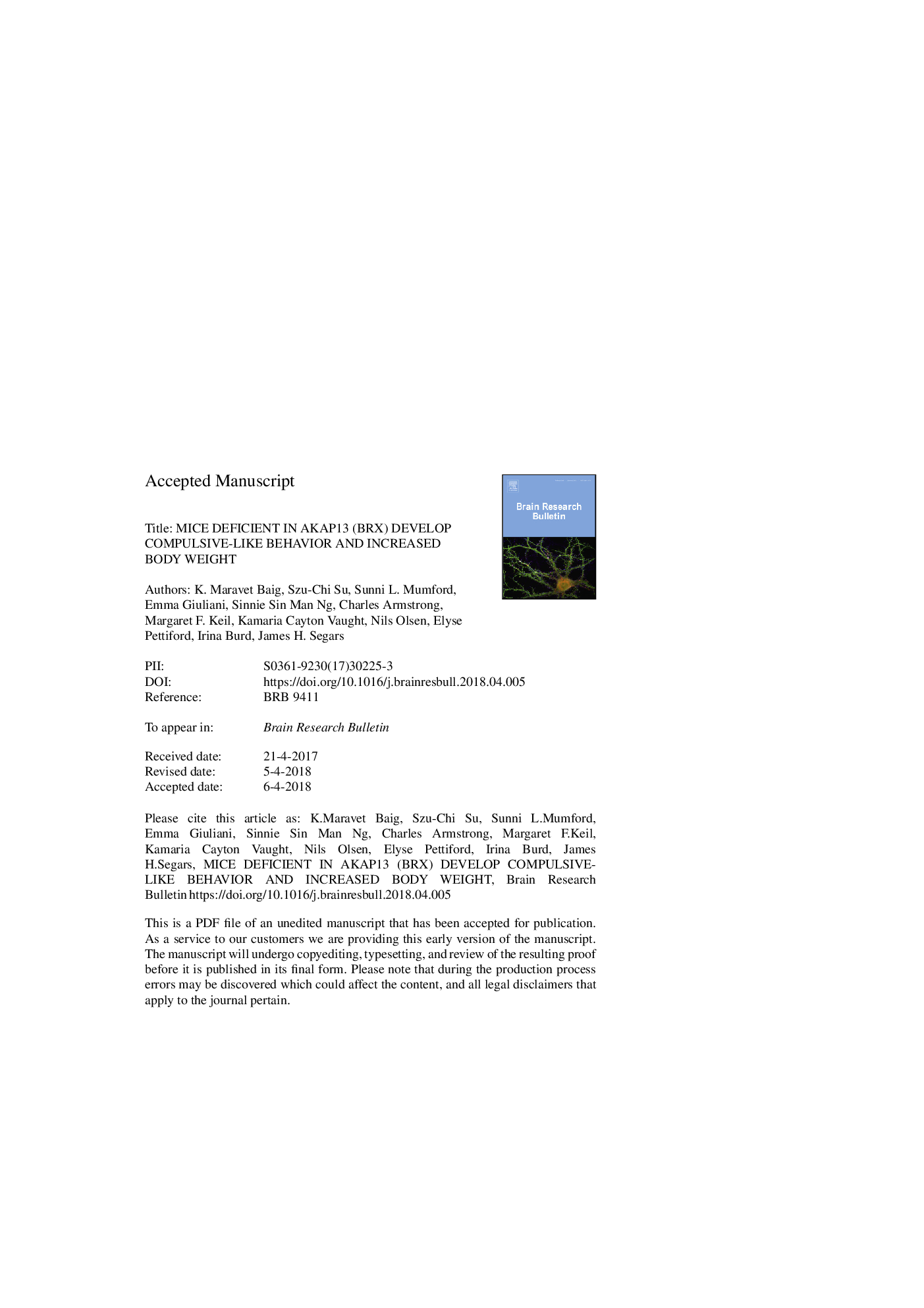| Article ID | Journal | Published Year | Pages | File Type |
|---|---|---|---|---|
| 8838846 | Brain Research Bulletin | 2018 | 36 Pages |
Abstract
Akap13 haploinsufficiency led to sex-dependent, compulsive-like behavioral changes in a murine model. Interestingly, Akap13 haploinsufficiency also led to a sex-dependent increase in body weight. These results revealed a requirement for AKAP13 in murine behavior, particularly in female mice, and is the first report of AKAP13 involvement in murine behavior. Future studies may examine the involvement of AKAP13 in the pathophysiology of OCD in female humans and may contribute to a better understanding of the role of AKAP13 and sex hormones in the development and exacerbation of OCD.
Keywords
Related Topics
Life Sciences
Neuroscience
Cellular and Molecular Neuroscience
Authors
K. Maravet Baig, Szu-Chi Su, Sunni L. Mumford, Emma Giuliani, Sinnie Sin Man Ng, Charles Armstrong, Margaret F. Keil, Kamaria Cayton Vaught, Nils Olsen, Elyse Pettiford, Irina Burd, James H. Segars,
